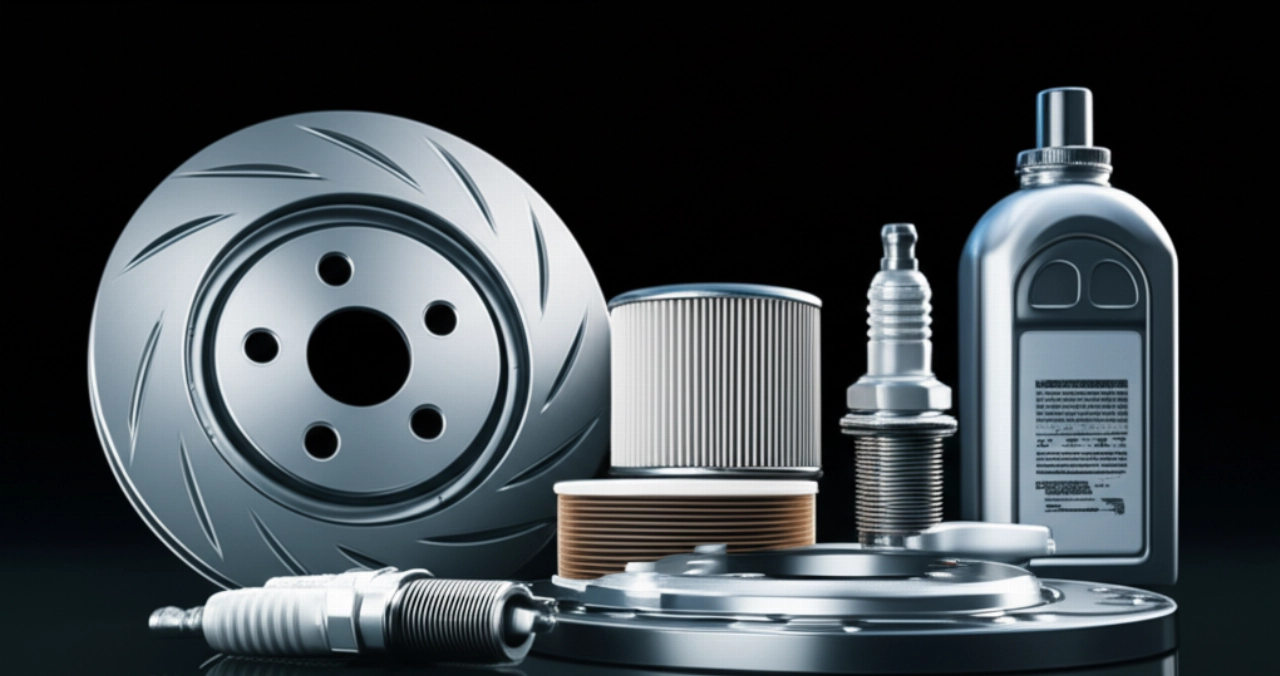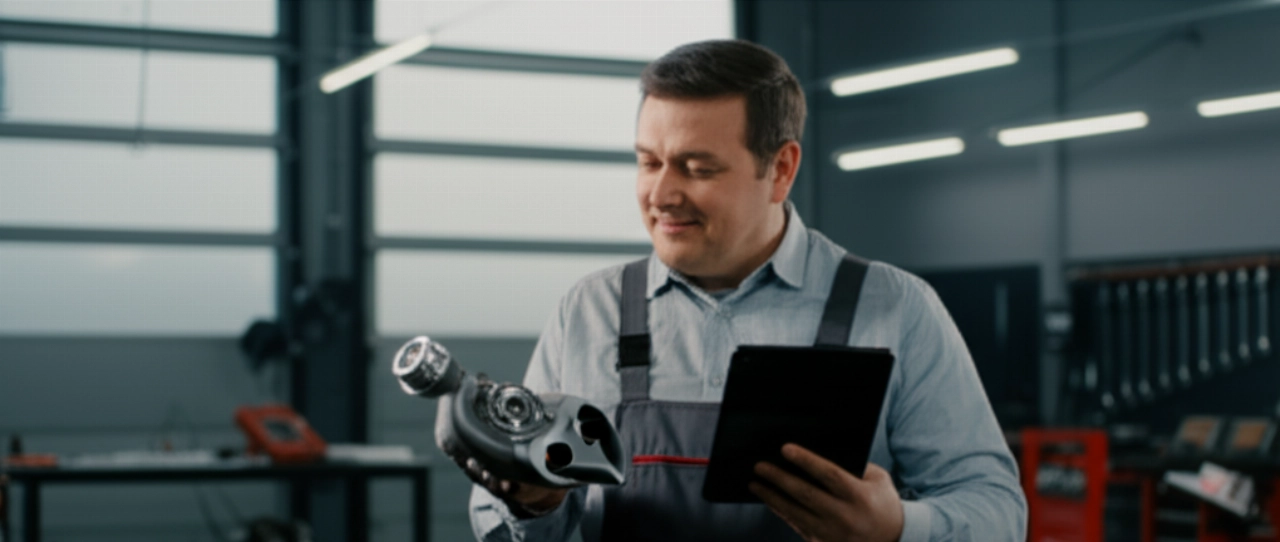Is your current auto parts ecommerce platform holding your business back? The auto parts industry demands precision, speed, and complex data management. Yet, many businesses find their digital storefronts buckling under the weight of intricate product catalogs, VIN-specific fitment data, and the sheer volume of B2B transactions.
You’re facing the scalability ceiling, the nightmare of integration hell with your ERP and PIM, and the frustration of a 'one-size-fits-all' trap that stifles your unique business processes. This isn't just about a website; it's about engineering a resilient, high-performance digital core. This guide will illuminate the path to an auto parts ecommerce solution that not only handles today's demands but future-proofs your enterprise for sustained growth and market leadership.

Beyond the Catalog: How Your Auto Parts Ecommerce Platform Becomes a Strategic Asset
In the competitive landscape of vehicle parts distribution, your digital presence must be more than just a place to list products. A truly strategic auto parts ecommerce platform transforms into your central business operating system. It's the engine that drives market share, enhances profitability, and creates a competitive moat that your rivals cannot easily replicate.
Imagine a system that:
- Seamlessly manages complex pricing structures and customer-specific catalogs.
- Provides real-time inventory accuracy across multiple warehouses.
- Empowers your B2B customers with intuitive customer portals and self-service options.
- Optimizes your entire supply chain optimization from order to delivery.
This isn't a future dream; it's the immediate necessity for any enterprise looking to dominate the aftermarket parts sector.

The Scalability Ceiling & Integration Hell: Why Generic Platforms Fail Auto Parts Enterprises
The pain points are palpable for businesses relying on inadequate platforms:
The Scalability Ceiling
Your current setup, perhaps a basic Shopify plan or an overburdened WooCommerce, simply wasn't built for the scale and complexity of enterprise auto parts ecommerce. It buckles under traffic spikes, struggles with massive product catalogs, and can't handle the intricate B2B workflows that define your business. This isn't just an inconvenience; it's lost revenue and a direct threat to your growth.
Integration Hell
Are your ERP, PIM, CRM, and WMS systems disconnected islands? The operational nightmare of manual data entry, reconciliation errors, and delayed information flow is a silent killer of efficiency and profitability. True ERP integration and a robust PIM system are non-negotiable for real-time inventory, accurate pricing, and streamlined order fulfillment.
The 'One-Size-Fits-All' Trap
Off-the-shelf SaaS platforms, while seemingly convenient, often become restrictive cages for businesses with unique needs. Complex pricing models, custom product configurators, or industry-specific workflows like VIN lookup and precise fitment data are often impossible or prohibitively expensive to implement, stifling your ability to serve your customers effectively and differentiate in the market.
The Performance Bottleneck
A slow site kills conversions. In the fast-paced auto parts world, customers expect instant access to information and a seamless purchasing experience. Lagging load times, clunky navigation, and unresponsive interfaces directly impact your bottom line, leading to abandoned carts and frustrated buyers.

Engineering Resilience: Key Pillars of a High-Performance Auto Parts Ecommerce Ecosystem
Building a future-proof auto parts ecommerce platform requires a strategic blueprint, not just a shopping cart. Here are the critical pillars:
- Composable Architecture: Embrace an API-first, MACH architecture approach. This headless, modular design ensures unparalleled flexibility, allowing you to swap out components and integrate new technologies without replatforming every few years. It's the ultimate in future-proofing.
- Deep Integration Capabilities: Your platform must be the central hub, seamlessly connecting with your existing ERP, CRM, PIM, and WMS. This ensures real-time inventory, accurate pricing, automated order processing, and a single source of truth for all data.
- Advanced B2B Functionality: Go beyond basic checkout. Implement custom pricing tiers, credit accounts, quick order pads, bulk ordering, and highly personalized customer-specific catalogs. Crucially, integrate precise VIN lookup and fitment data to eliminate errors and enhance customer trust.
- Performance Optimization: Speed is paramount. A robust infrastructure, intelligent caching, Content Delivery Networks (CDNs), and optimized code ensure lightning-fast load times, even with vast product catalogs, directly impacting your conversion rate optimization (CRO).
- Data-Driven Insights: Your platform should be a goldmine of actionable data. Leverage advanced analytics to understand customer behavior, optimize product offerings, and identify new growth opportunities.
- Lower Total Cost of Ownership (TCO): While initial investment in a custom-engineered solution might seem higher, the long-term benefits of reduced operational costs, fewer manual errors, and increased efficiency lead to a significantly lower TCO and higher ROI.
Case Study: Revitalizing a €75M Auto Parts Distributor's Digital Core
A leading European auto parts distribution company, generating €75M annually, faced severe limitations with their legacy ecommerce platform. Manual order processing was rampant, inventory was frequently out of sync, and their B2B customers struggled with an outdated portal that lacked essential features like personalized pricing and accurate fitment data.
Commerce K partnered with them to engineer a custom, integrated auto parts ecommerce platform. We implemented a composable architecture, deeply integrating with their SAP ERP and a new PIM system. The solution included advanced B2B features like tiered pricing, credit line management, and a sophisticated VIN lookup tool.
The result? A 40% reduction in manual order processing, a 25% increase in online order volume within the first year, and significantly improved customer satisfaction. Crucially, the migration was executed with zero downtime, ensuring business continuity and protecting their SEO rankings.
From Complexity to Clarity: Partnering with Commerce K for Your Auto Parts Ecommerce Future
The difference between a vendor and a partner lies in understanding. At Commerce K, we don't just build websites; we engineer strategic digital commerce solutions tailored to the unique complexities of the auto parts ecommerce industry. We understand the nuances of B2B auto parts, the critical importance of accurate data, and the imperative for a platform that scales with your ambition.
Our philosophy is to de-risk your investment, ensuring your project delivers measurable ROI through superior scalability, unparalleled performance, and seamless integration. We are your trusted advisors, guiding you from technical confusion to strategic clarity.
Frequently Asked Questions about Auto Parts Ecommerce
What is the typical ROI for a custom auto parts ecommerce platform?
While ROI varies, our clients typically see significant returns within 18-36 months through reduced operational costs (e.g., fewer manual orders, less customer service inquiries), increased sales efficiency, improved customer retention, and expanded market reach. A strategic platform is an investment in long-term profitability.
How do you handle complex integrations with existing ERP or PIM systems?
Our expertise lies in complex system integrations. We employ an API-first approach, building robust, real-time connections with your existing ERP (e.g., SAP, Oracle), PIM, CRM, and WMS. This ensures data consistency, automates workflows, and eliminates manual data entry, creating a truly unified commerce ecosystem.
What are the timelines for such a comprehensive project, and how do you ensure business continuity?
Project timelines for enterprise-level auto parts ecommerce solutions typically range from 6 to 18 months, depending on scope and complexity. We employ agile methodologies and rigorous project management to ensure transparency and efficiency. Business continuity is paramount; we plan meticulous migration strategies, often involving phased rollouts and parallel operations, to ensure zero downtime and minimal disruption.
How does Commerce K ensure SEO continuity during an ecommerce migration?
SEO continuity is a critical component of our migration strategy. We conduct comprehensive SEO audits, map all URLs, implement 301 redirects, optimize site structure for search engines, and ensure all content and metadata are preserved or improved. Our goal is to protect and enhance your organic search visibility throughout the transition.
Can your platform accommodate highly specific B2B pricing models and customer portals?
Absolutely. Custom B2B pricing models (e.g., tiered pricing, customer-specific contracts, volume discounts, credit accounts) are a core strength of our solutions. We engineer bespoke customer portals that offer personalized catalogs, order history, quick reorder functions, and self-service account management, tailored to the unique needs of your B2B buyers.
Stop navigating technical debt and missed opportunities. Your auto parts business deserves a clear digital commerce roadmap that delivers measurable results. The first step isn't a quote; it's a no-obligation Scoping & Strategy Session with our senior architects. We'll help you map your potential and de-risk your investment. Click here, tell us about your project, and discover the opportunities you're currently missing. Start building your future-proof commerce engine today.
Now that you understand the pillars of a resilient auto parts ecommerce platform, explore how our expertise in ecommerce migration services ensures a seamless transition. Curious about the underlying architecture? Dive deeper into the benefits of headless commerce agency for ultimate flexibility.





